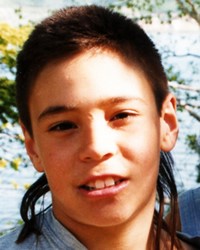The Micmac, also known as Mi'kmaq, are an Algonquian-speaking Indigenous people whose traditional homeland spans the northeastern region of North America, including present-day Nova Scotia, New Brunswick, Prince Edward Island, and parts of Maine. In the United States, Micmac communities are primarily located in northern Maine. Historically, the Micmac lived as semi-nomadic hunters, fishers, and gatherers, moving seasonally to follow resources across the forests and coasts of the Atlantic region.
Their name, meaning "my friends" or "allies," reflects their communal nature and cooperative way of life. The arrival of European settlers in the 16th and 17th centuries brought trade, cultural exchange, and, eventually, conflict and displacement. Despite centuries of colonization and assimilation pressures, the Micmac have preserved much of their heritage, language, and traditions, while also adapting to modern Canadian society.
Today, the Micmac in Canada maintain tribal communities such as the Aroostook Band of Micmacs. Many families balance participation in the modern economy with the preservation of traditional lifeways. Craftsmanship, including basket making, beadwork, and wood carving, continues to be an important cultural practice. Tribal events and seasonal gatherings celebrate their heritage through dance, drumming, and storytelling.
Education, health care, and employment are central concerns, with community programs designed to promote self-sufficiency and cultural pride. Younger generations are increasingly engaged in language revitalization efforts, learning the Mi'kmaq language to strengthen their connection to their ancestors. Life in Micmac communities often reflects a blend of traditional values, communal responsibility, and the challenges of maintaining identity within a wider American context.
Before European contact, the Micmac followed an animistic belief system centered on the spiritual presence in all of creation. They revered the Creator and respected the spirits of animals, plants, and natural forces. With the arrival of French missionaries, many Micmac converted to Roman Catholicism, and Catholic traditions remain strong in many families today. However, traditional beliefs and practices have not entirely disappeared; some Micmac incorporate ancient spiritual concepts into their understanding of faith, resulting in a blend of Christianity and Indigenous spirituality.
Among Micmac Christians, there is often a deep sense of reverence for both God and the natural world. While faith in Christ is present in many communities, there remains a need for greater biblical understanding and discipleship that can strengthen believers and help them share the gospel in culturally meaningful ways.
The Micmac people face ongoing challenges related to cultural preservation, education, and spiritual growth. Many communities work diligently to reclaim their language and heritage while striving to overcome the effects of historical trauma and socioeconomic limitations. Opportunities for ministry exist in building relationships of trust, supporting holistic community development, and sharing the hope of Christ in ways that respect their culture. Strengthening families, encouraging youth, and developing strong Christian leadership within Micmac communities are important steps toward both spiritual and social renewal.
Pray that the Micmac people would experience spiritual renewal and a growing hunger to know Jesus Christ personally.
Pray for healing from the lasting wounds of colonization, displacement, and cultural loss that have affected many families.
Pray that the Micmac language and traditions would be preserved in ways that glorify God and strengthen community identity.
Pray for the faithful translation of the complete Bible in the Mi'Kmaq language.
Pray for more discipleship and outreach materials to be created and widely distributed in the Micmac heart language.
Pray that the Micmac peoples would fall in love with and reverence the true Creator and give him all their heart.
Pray for the mighty work of the Holy Spirit in the hearts of the Micmac people.
Finally, pray that the Micmac Christians would wholeheartedly embrace the Great Commission and boldly preach the gospel and make disciples among their people and the world around them.
Scripture Prayers for the Micmac in Canada.
rins, Harald E. L. The Mi'kmaq: Resistance, Accommodation, and Cultural Survival. Harcourt Brace College Publishers, 1996.
Aroostook Band of Micmacs. Official Tribal Website.
Speck, Frank G. The Eastern Algonquian: Mi'kmaq and Maliseet Ethnology. University of Pennsylvania Press.
Native Languages of the Americas. Mi'kmaq Language and Culture.
| Profile Source: Joshua Project |










